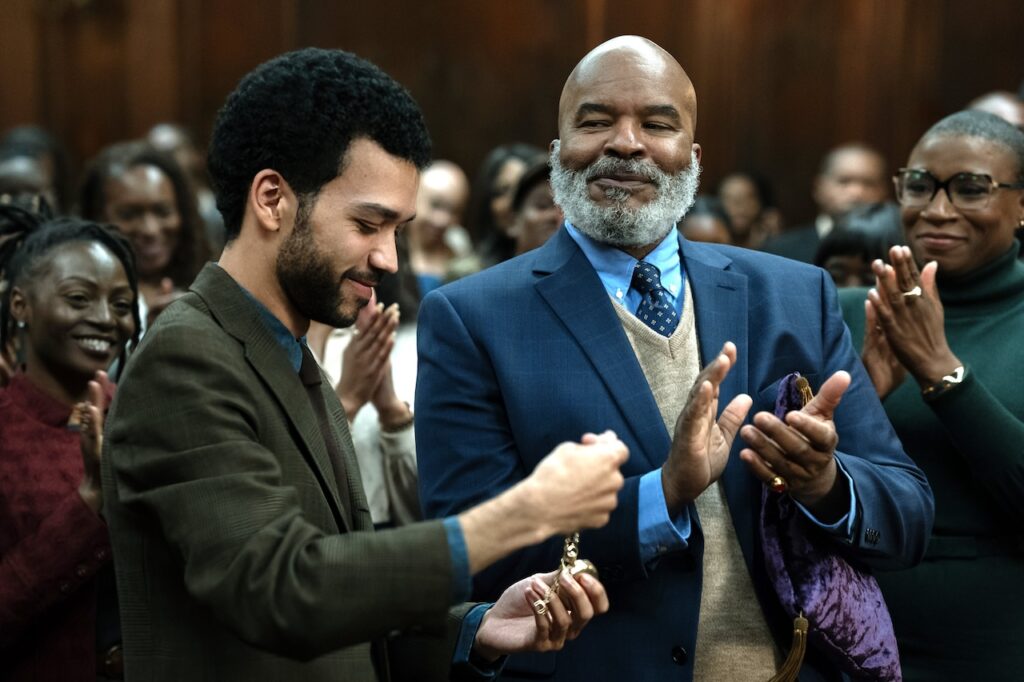NEW YORK (OSV News) – An old movie trope is spun into a satiric fantasy with middling results in “The American Society of Magical Negroes” (Focus).
The phrase “Magical negro” originated decades ago as a derogatory term for film plots in which a Black character, usually male, served as the instructional and moral mentor, as a supporting character, to a white actor in the leading role.
The most famous of these was Will Smith’s caddie for Matt Damon in “The Legend of Bagger Vance” (2000). Others earning the regrettable tag include Morgan Freeman’s chauffeur in “Driving Miss Daisy” (1988) and Michael Clarke Duncan’s mystical inmate to Tom Hanks’ prison guard in “The Green Mile” (1999).
In his feature debut, writer-director Kobi Libii stretches this idea into the basis for a parable about race relations. Working from the premise that white people who feel threatened by African Americans are dangerous, a secret Black cabal has formed dedicated to keeping white people content, mostly by quickly addressing their emotional needs in the workplace.
As Roger (David Alan Grier), a veteran member of the titular organization, puts it to his latest recruit, Aren (Justice Smith), “The happier they are, the safer we are.” For her part, DeDe (Nicole Byer), the clique’s leader, maintains that its work is only effective when everyone involved aims for a single goal without making themselves prominent.
That becomes difficult for Aren after he’s dispatched to help Jason (Drew Tarver), a designer at the fictional social network Meetbox, advance his career with the right people skills, only to find himself falling in love with Jason’s associate and “work wife” Lizzie (An-Li Bogan). Thereupon, speaking of tropes, the story devolves into the familiar pattern of a romantic comedy triangle setup.
Meetbox, meanwhile, is struggling because of a flaw in its technology. Not only does the company’s facial recognition software have a problem recognizing people of color; it has excluded the entire nation of Ghana.
The requirements the society’s members must fulfill include maintaining an even temper at all times and so avoiding outbursts during which they might tell white people what they really think of their indolence and racism. Failing to stay on such an even keel can result in expulsion, but also, the script implies, might lead to violence as well.
Yet Libii seems reluctant to explore the more disturbing aspects of his theme. And the ugly implications of appeasing racism — as his imaginary band of activists would seem to be doing — go unaddressed.
Instead, Libii takes a consistently gentle approach with his cast of highly appealing actors, the underlying assumption being, it appears, that most problems can be solved simply by talking them over calmly. That’s a humane notion but it leaves his send-up feeling rather toothless.
The film contains mature themes, fleeting profanity and brief rough language. The OSV News classification is A-III — adults. The Motion Picture Association rating is PG-13 — parents strongly cautioned. Some material may be inappropriate for children under 13.

